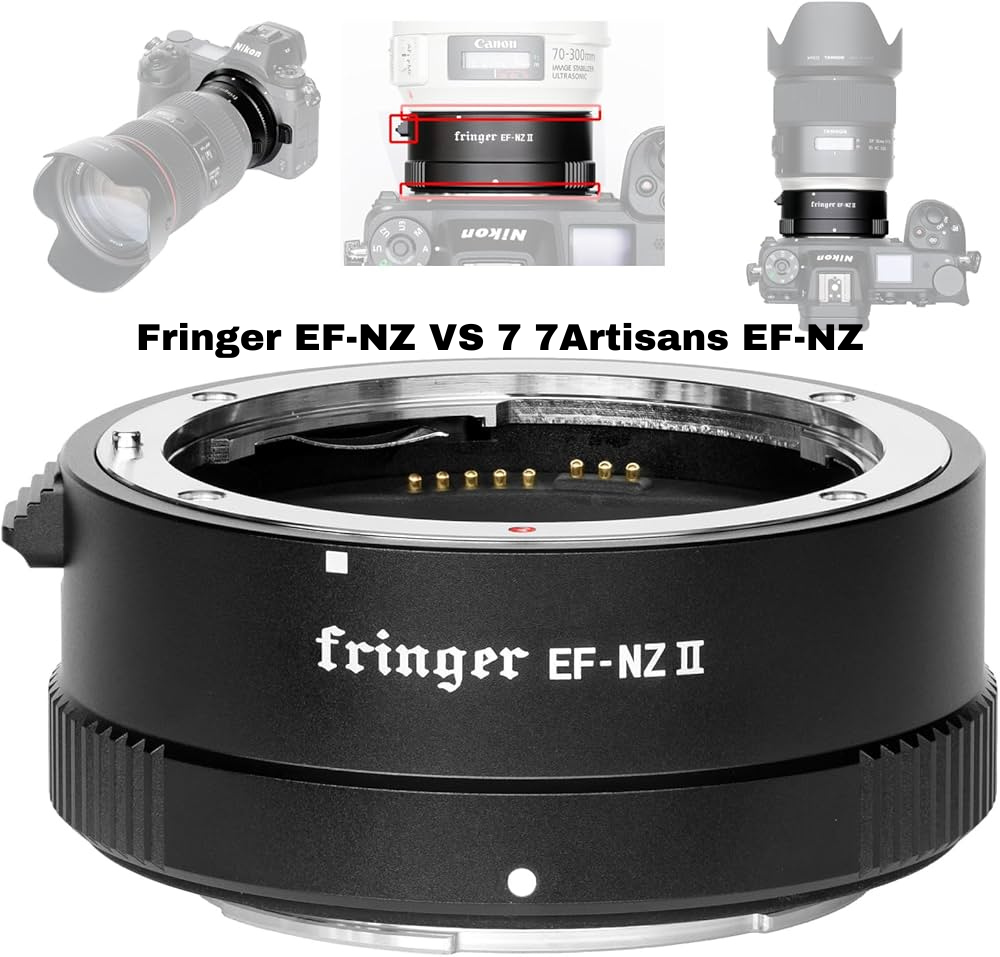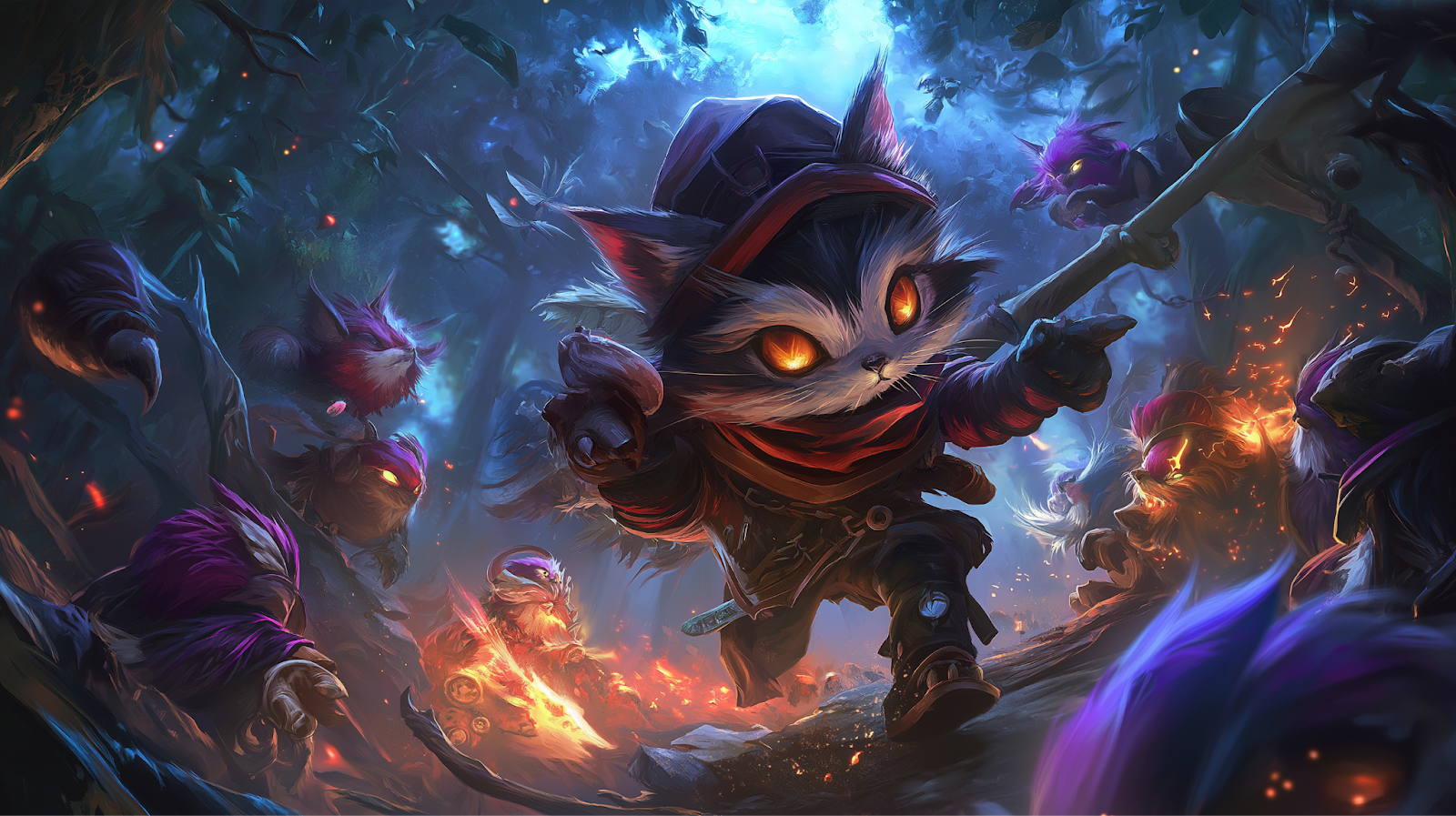Lens adapters have become indispensable tools for photographers, allowing them to expand their lens options and utilize gear across different brand ecosystems. The Fringer EF-NZ VS 7 7Artisans EF-NZ are two notable contenders that facilitate the use of Canon EF lenses on Nikon Z camera bodies. This article delves into the specifications, performance, and user experiences associated with these adapters to aid photographers in making an informed decision.
Fringer EF-NZ: Precision and Performance for the Professional
The Fringer EF-NZ adapter is crafted from high-grade metals, ensuring durability and a secure fit between the camera and lens. It’s known for maintaining excellent communication between Canon EF lenses and Nikon Z cameras, supporting essential functions like autofocus and aperture control. Here are some notable features:
- Autofocus Capability: The Fringer EF-NZ is lauded for its fast and reliable autofocus, making it a prime choice for photographers engaged in dynamic and demanding shooting scenarios, such as wildlife or sports photography.
- Broad Lens Compatibility: This adapter is compatible with a wide array of Canon EF lenses, including those from third-party brands like Sigma and Tamron. Regular firmware updates further enhance its compatibility with new lenses and camera models, ensuring it remains up-to-date.
- Build Quality: The robust construction not only extends its lifespan but also ensures a precise alignment that can handle frequent changes between lenses without wear.
7Artisans EF-NZ: Simplicity and Value for Hobbyists
Conversely, the 7Artisans EF-NZ targets a different segment of the market—photographers who prefer manual focus or those who are more budget-conscious. Despite its more affordable price tag, it doesn’t skimp on quality. Key aspects include:
- Manual Focus Precision: While it lacks the advanced autofocus capabilities of the Fringer EF-NZ, the 7Artisans adapter offers precise manual focus control, which can be ideal for artists or those focusing on landscapes and portraits where deliberate framing is essential.
- Lightweight Design: It is designed with travel and ease of use in mind, featuring a lighter construction that is less cumbersome, making it easy to pack and carry on long trips or day-long shoots.
- Compatibility and Cost-Effectiveness: The adapter supports most Canon EF lenses and is particularly suitable for photographers who do not require autofocus functionality and wish to keep their gear expenditures low.
Comparison of Performance and Usability
In terms of performance, both adapters ensure that users can benefit from their existing collections of Canon EF lenses on Nikon Z cameras. However, their target audiences might find that:
- Autofocus vs. Manual Focus: The Fringer’s superior autofocus system is more suitable for fast-paced photography, while the 7Artisans’s manual focus appeals to those who have the time and desire to engage more deeply with their craft.
- Material Quality and Durability: The Fringer’s use of higher-grade materials may provide a slight edge in durability and feel, important for professionals who will subject their equipment to rigorous use.
- Firmware and Updates: Frequent updates from Fringer ensure compatibility with a broader range of equipment and the latest camera technologies, whereas updates from 7Artisans are less frequent but generally sufficient for hobbyist use.
Optimizing Adapter Use: Tips for Maximizing Performance
- Firmware Updates: Regularly updating the firmware for your adapter ensures compatibility with new lenses and camera bodies.
- Lens Calibration: Some adapters, especially those supporting autofocus like the Fringer EF-NZ, benefit from lens calibration to enhance accuracy.
- Handling Techniques: Proper handling and maintenance can prevent damage and wear to both the adapter and camera mount.
Adapters like the Fringer EF-NZ and 7Artisans EF-NZ can dramatically enhance the functionality of your camera system. Here are a few tips to get the most out of them:
AND
Real-World Applications: User Experiences Shared
- Professional Feedback: Insights from professional photographers who use these adapters in high-stakes environments.
- Hobbyist Stories: Experiences from amateur photographers who value manual control and budget-friendly options.
- Adaptation Successes:Example
Photographers from various backgrounds have shared how lens adapters like the Fringer EF-NZ and 7Artisans EF-NZ have transformed their shooting experiences:
Professionals often praise the Fringer EF-NZ for its reliability in fast-paced shooting environments like weddings and sports, where capturing the moment perfectly is crucial. On the other hand, hobbyists appreciate the 7Artisans EF-NZ for its affordability and the manual control it offers, allowing for a more involved photographic process, ideal for learning and creative experimentation. Many users have shared stories of how these adapters have enabled them to achieve shots that were not possible with their native lenses, such as using unique vintage lenses for a distinctive look or adapting high-quality prime lenses for macro photography.
Fringer EF-NZ VS 7 7Artisans EF-NZ Future Trends: The Evolution of Lens Adapters
- Technological Advances: Predictions for how upcoming technology will further integrate lens adapters.
- Market Expansion: How the growing popularity of mirrorless cameras might affect adapter development.
- User-Centric Innovations: Features that could enhance user experience based on current trends.
As photography technology evolves, so too do the accessories that enhance camera functionality, including lens adapters:
The trend towards mirrorless cameras has already spurred significant advancements in adapter technology, with companies like Fringer and 7Artisans continually innovating to meet demand. Future developments might include even better electronic integration allowing for more seamless communication between adapted lenses and camera bodies. Additionally, we may see adapters that offer improved optical correction, enabling higher image quality with adapted lenses. User feedback drives many of these innovations, suggesting that future adapters will likely focus on enhancing the user experience, possibly incorporating more intuitive controls or automated functions to simplify their use.
Fringer EF-NZ VS 7 7Artisans EF-NZ: Choosing the Right Adapter for Your Photography Style
- Consider Your Subjects: Align the adapter’s capabilities with the type of photography you do.
- Evaluate Your Gear: Match the adapter to your specific camera and lens setup.
- Budget vs. Performance: Balance the cost of the adapter against the features you really need.
- Future-Proofing: Think about potential gear upgrades and how the adapter will fit in.
Selecting the right lens adapter involves more than just comparing prices; it’s about matching the adapter to your specific photographic needs and equipment:
For those primarily involved in action or wildlife photography, an adapter like the Fringer EF-NZ with its fast autofocus capability would be invaluable. Conversely, if you’re more into landscape or studio portraits where manual focus is preferable, the affordability and manual precision of the 7Artisans EF-NZ might be more appealing. Consider the compatibility of the adapter with your existing lenses and camera body, and also think about future upgrades you might make—will this adapter still be useful if you switch cameras or add more lenses to your kit?
Adapting to New Techniques: Learning Curve and Challenges
- Mastering Manual Focus: Skills needed for adapters that don’t support autofocus.
- Utilizing Autofocus with Adapters: Tips for optimizing autofocus performance.
- Troubleshooting Common Issues: Dealing with misalignment, firmware issues, or incompatibility.
- Expanding Photographic Skills: How overcoming adapter challenges can improve overall photography skills.
Using lens adapters can introduce new techniques and challenges, requiring photographers to adapt and expand their skill sets:
For those new to using manual focus, such as users of the 7Artisans EF-NZ, mastering this technique can enhance your ability to compose and capture images thoughtfully. Users of adapters like the Fringer EF-NZ, which supports autofocus, may need to learn how to maximize this feature’s effectiveness, especially in challenging lighting or action scenarios. Common issues such as lens misalignment or communication errors between the lens and camera can usually be resolved with firmware updates or careful reattachment, offering valuable troubleshooting experience. Overcoming these challenges not only broadens your technical expertise but also enhances your adaptability as a photographer.
Community and Support: Leveraging User Networks
- Joining Online Forums: Where to find communities of adapter users.
- Learning from Others: Gaining insights from experienced users’ tips and tricks.
- Sharing Experiences: Contributing your own knowledge to help others.
- Staying Updated: Keeping abreast of new adapter updates and lens compatibility through community engagement.
The user community around photography equipment like lens adapters can be a rich resource for support and learning:
Online forums and social media groups dedicated to specific types of photography equipment, like the Nikon Z series cameras and lens adapters, offer a wealth of information and firsthand user experiences. Engaging with these communities can provide not only practical advice on using the Fringer EF-NZ and 7Artisans EF-NZ adapters but also creative inspiration and troubleshooting support. Members often share updates on firmware, compatibility tips, and even detailed reviews that can help you make the most out of your adapter. By participating in these communities, you can also contribute to the collective knowledge, assisting others while honing your own skills and staying updated on the latest photographic tools and techniques.
Conclusion
Choosing between the Fringer EF-NZ and 7Artisans EF-NZ depends largely on your specific needs and budget. The Fringer EF-NZ stands out for professionals or enthusiasts who need reliable autofocus and robust build quality. Meanwhile, the 7Artisans EF-NZ is an excellent choice for those on a budget or who prefer the tactile experience of manual focusing. Both adapters offer great ways to extend the versatility of your Nikon Z camera, allowing you to tap into a vast array of lens options not originally designed for your system.


